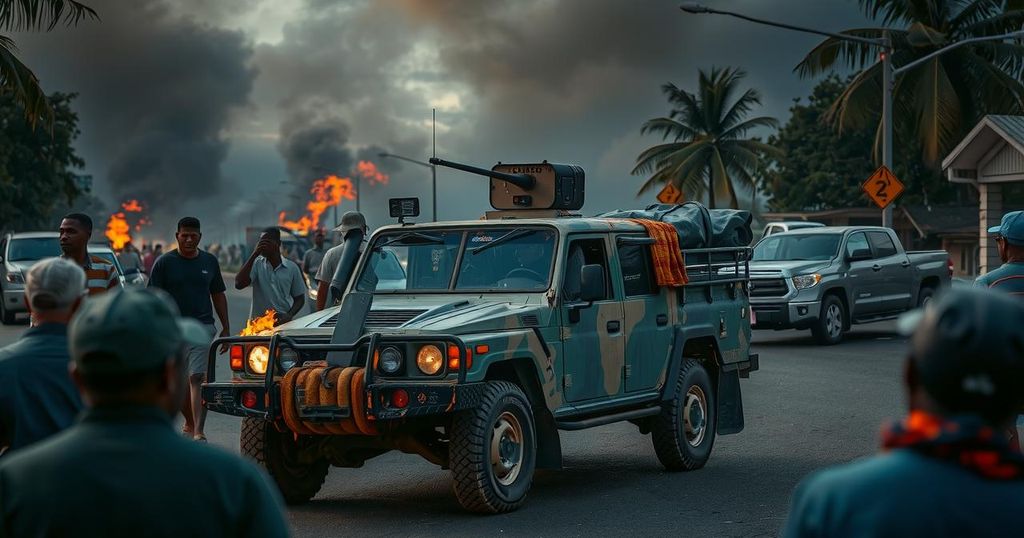Protests Erupt in Mozambique Following Contested Election and Violence Against Civilians

A military vehicle struck a woman during protests in Maputo, following a controversial election. Opposition leader Venâncio Mondlane, claiming electoral fraud, rallied supporters to demonstrate against the ruling Frelimo party. Violence resulted in multiple fatalities and has led to increased scrutiny from human rights organizations and foreign governments, demanding accountability for the actions of security forces.
In the Mozambican capital of Maputo, a military vehicle struck a woman amid ongoing protests following a disputed election. This incident, which occurred on Wednesday, was captured in videos circulating on social media. The vehicle barreled through a barricade erected by protesters opposing the election results, which saw ruling party candidate Daniel Chapo allegedly secure 70.7% of the votes, while opposition leader Venâncio Mondlane claimed a victory with 20.3% and has since fled the country.
The injured woman is recovering from head injuries, and the armed forces expressed deep remorse, stating they would assist with her medical care. Meanwhile, in Nampula, police violence escalated with two demonstrators killed during a confrontational protest. As civil unrest continues, Mondlane’s supporters persist in their demonstrations, blocking highways and voicing their demands for political change.
The situation has prompted urgent calls for accountability, with local rights groups documenting numerous fatalities at the hands of security forces since the election. Protesters, expressing their frustrations with the Frelimo regime, argue for basic freedoms and an end to corruption. The international community has condemned the violence against civilians, noting an alarming trend of targeted attacks on opposition figures.
Mozambique has experienced a surge of unrest following recent elections, which many citizens, particularly opposition supporters, perceive as fraudulent. Dominated by the Frelimo party since its independence in 1975, the political landscape has been marred by allegations of election rigging and human rights abuses. This environment has led to nationwide protests, particularly among the country’s youthful population, who crave significant change in governance. Human Rights Watch and local civil society organizations have reported increasing violence by security forces against citizens, including young protesters, which has heightened international scrutiny and condemnation. The events of October and November, characterized by elevated tensions and fatalities, reflect a deepening crisis within the country as opposition figures rally support against perceived systemic injustices.
The tragic incident involving a military vehicle and the ongoing protests in Mozambique underscore the volatility of the current political climate. As citizens demand accountability and challenge the ruling party’s authority, the potential for further unrest remains high. The situation draws critical attention from both national and international observers, seeking to ensure that the rights of all Mozambicans are upheld. The government’s acknowledgment of incidents involving civilian casualties is a crucial step, yet decisive action is needed to prevent further escalation of violence.
Original Source: www.theguardian.com







